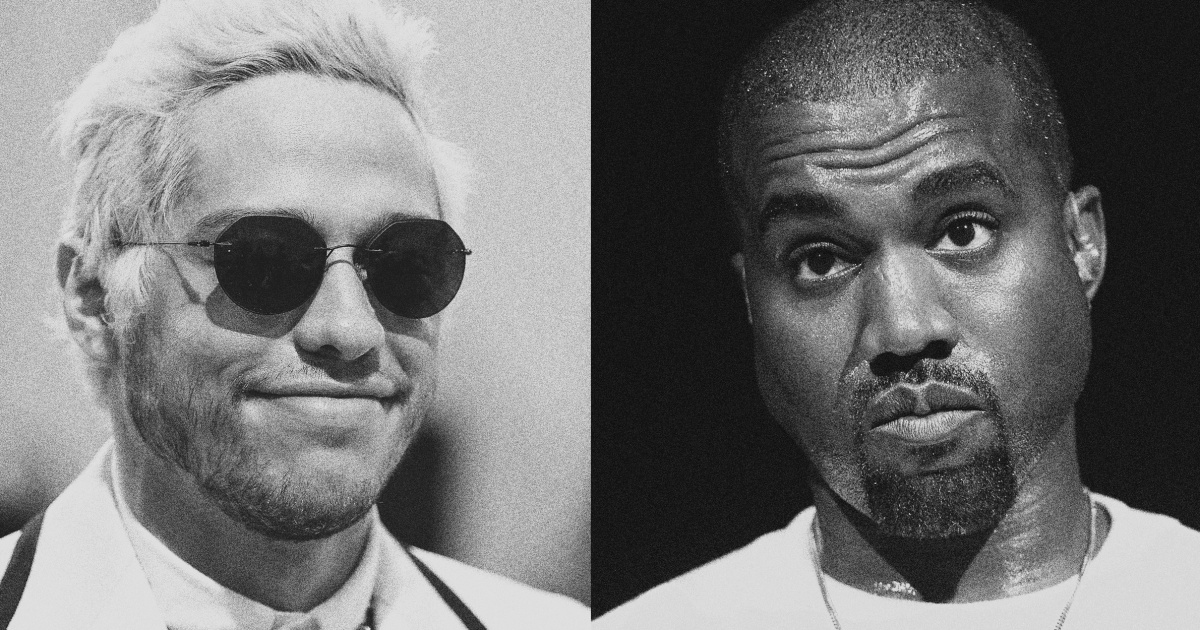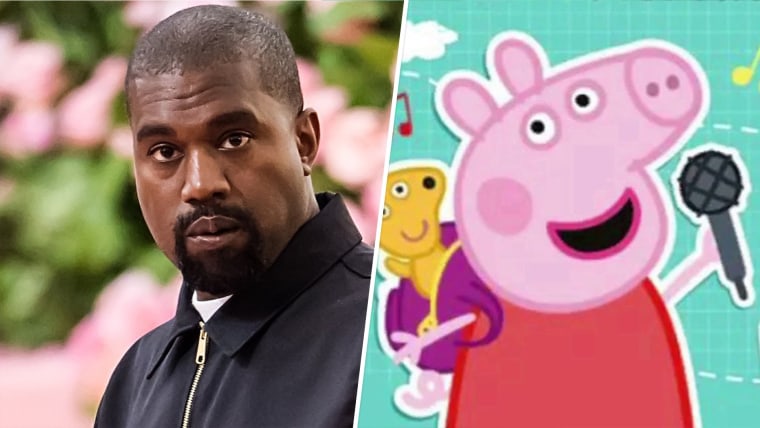
The Kanye-Kim Kardashian-Pete Davidson drama has no winners
Over the past year, it’s been nearly impossible to avoid news about the drama unfolding between Kanye West (now known as Ye), Kim Kardashian and Pete Davidson (trust me, I’ve tried). First, Kardashian filed for divorce from Ye in January 2021. Then, Kardashian and Davidson started dating the following fall. As Ye and Kardashian’s divorce proceedings drew to a close, the artist began making increasingly aggressive remarks about both Kardashian and Davidson, including naming both of them on a public “beef list” and featuring a Davidson look-alike being kidnapped and decapitated in the video for “Eazy.”
Much of the drama has played out on Instagram, culminating in Ye being temporarily blocked by the platform after violating hate speech and bullying rules.
Much of the drama has played out on Instagram, culminating in Ye being temporarily blocked by the platform after violating hate speech and bullying rules. On Saturday, the rapper was barred from performing at the Grammy Awards for “concerning online behavior.” Before he was banned, however, a collection of screen captures purportedly depicting a text-message conversation between Davidson and Ye appeared on the Instagram feed of one of Davidson’s friends. The conversation opens with Davidson chiding Ye for openly criticizing his ex-wife’s parenting skills, noting that Kardashian is “literally the best mother I’ve ever met,” and that Ye is lucky that she’s the mother of his kids. Davidson goes on to say he’s “done being quiet” and that he won’t let West treat the two of them this way anymore. When Ye responds, asking where Davidson is, he responds with a shirtless photo of himself in bed, quipping that he’s “in bed with your wife.”
In the media, this exchange has been framed as a “defense” of Kardashian, her current partner standing up to her allegedly abusive ex. On Twitter, some abuse survivors described it as “sexy,” a joyful moment of another survivor getting the loving, protective partner that she deserves.
But as a survivor myself, I didn’t feel that way at all. Honestly, the whole exchange made me feel a little sick.
Eighteen years ago, when I was first getting out of my own abusive relationship, I might have felt a little differently. I’d grown up in an era of survivor revenge fantasies like “Foxfire,” which positioned violently getting even with an abuser as the best way to heal. I’d also bought into the idea that the best cure for a bad boyfriend was a devoted partner who loved me enough to bad-mouth my abuser and stand up in my defense. The height of romance.
But over the years, my feelings started to change. A few years ago, I opened up to a partner about some of the ways that men had violated me in the past. He immediately responded by telling me that hearing about the abuse made him want to fight these men. I know it was supposed to make me feel protected and cared for. Instead, it made me uncomfortable.
I attribute this change in outlook to a few different things. Over the past two decades, revenge has not, in fact, helped me heal, nor has “getting even” with my abuser. Much more effective has been getting space from him, and finding the freedom to live my life free from his shadow. A partner who’s baiting your ex over a text message probably isn’t getting you that freedom. They may just encourage your ex to engage with you further — particularly since, contrary to popular belief, a lot of abusers aren’t cowed by verbal taunts or even physical violence. They’re invigorated by them.
And after all, Kardashian is already permanently tied to Ye through their children. She doesn’t need anything adding fuel to an already potentially explosive co-parenting situation.
Nearly two decades of dating as an abuse survivor has taught me that the partners who get the most aggressive when they hear about my abusive ex, or other men who’ve assaulted me — the partners who want to “stand up for me” by bullying them back — aren’t actually the partners who are the most in my corner, most eager to respect me and my boundaries. More often than not they’ve been people with anger issues who see my abuser as a safe, acceptable target for their rage. That’s a big red flag.
And that partner who wanted to fight my past abuser? We didn’t end on good terms. Our last exchange was a particularly nasty fight that left me feeling embarrassed and ashamed that I’d ever imagined this person was “on my side.”
Getting out of an abusive relationship is rough, and survivors need all the help and support we can get. But from personal experience, attempting to dominate and belittle an abuser can mean just engaging with them on their own terms. It doesn’t necessarily break the cycle of abuse. And it doesn’t necessarily help many survivors actually break free.

